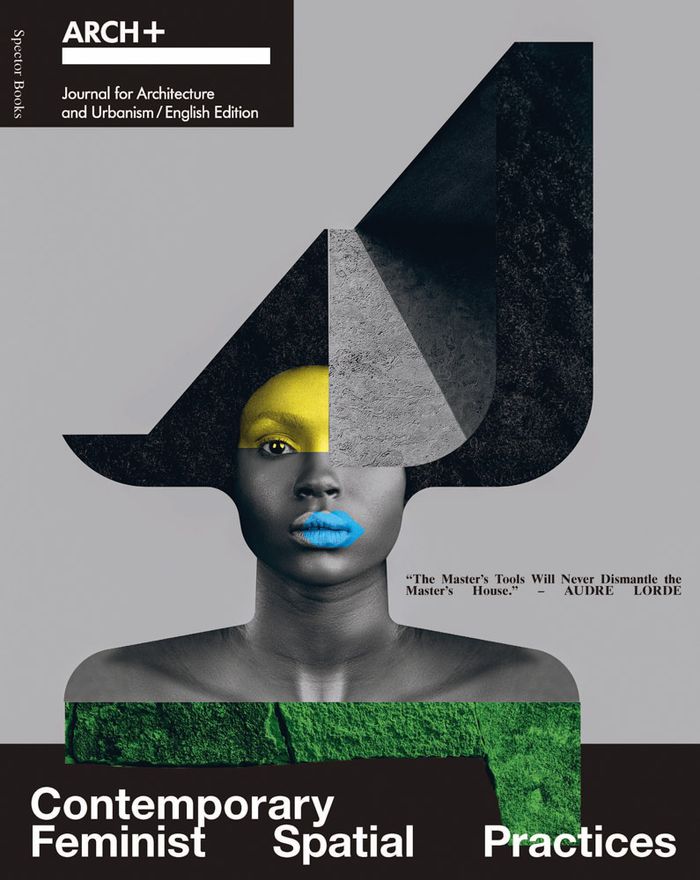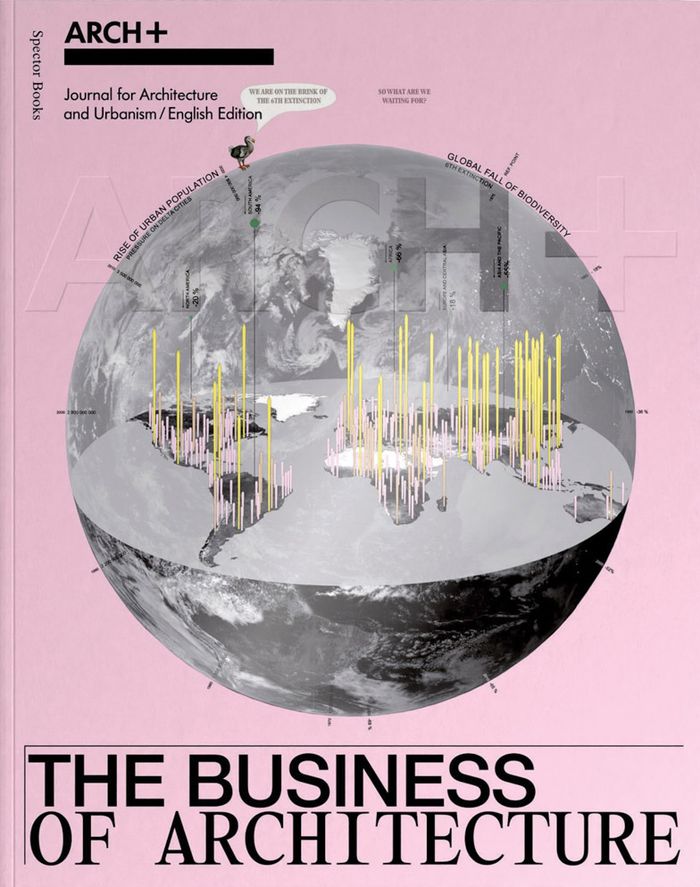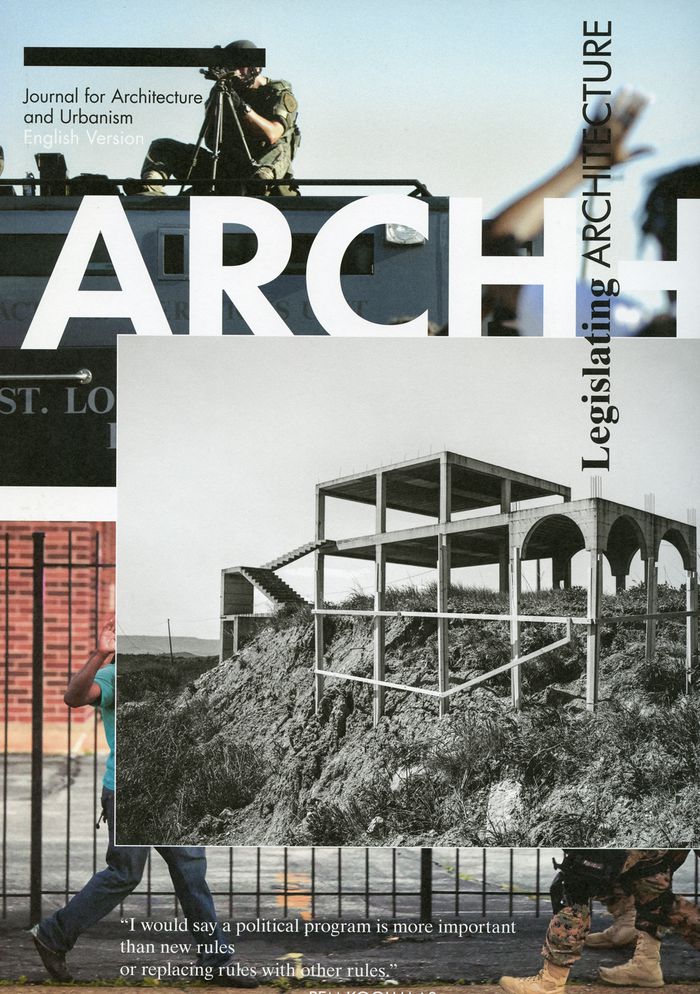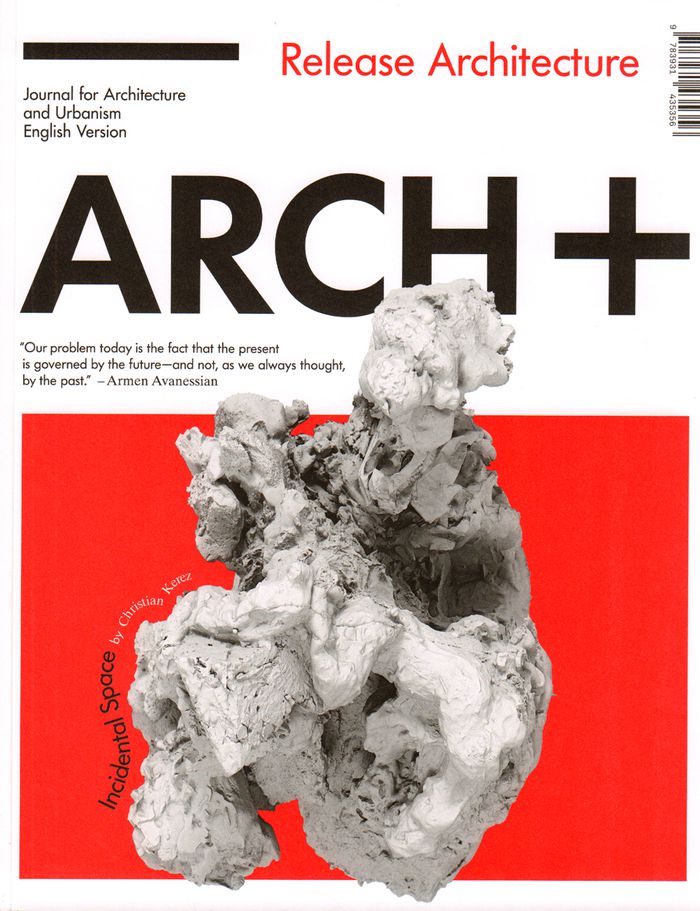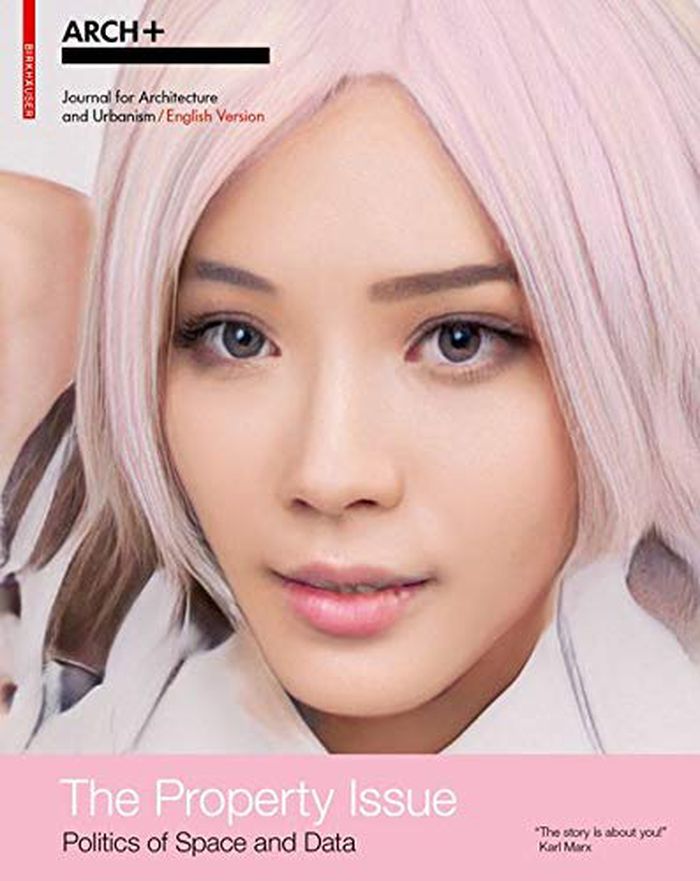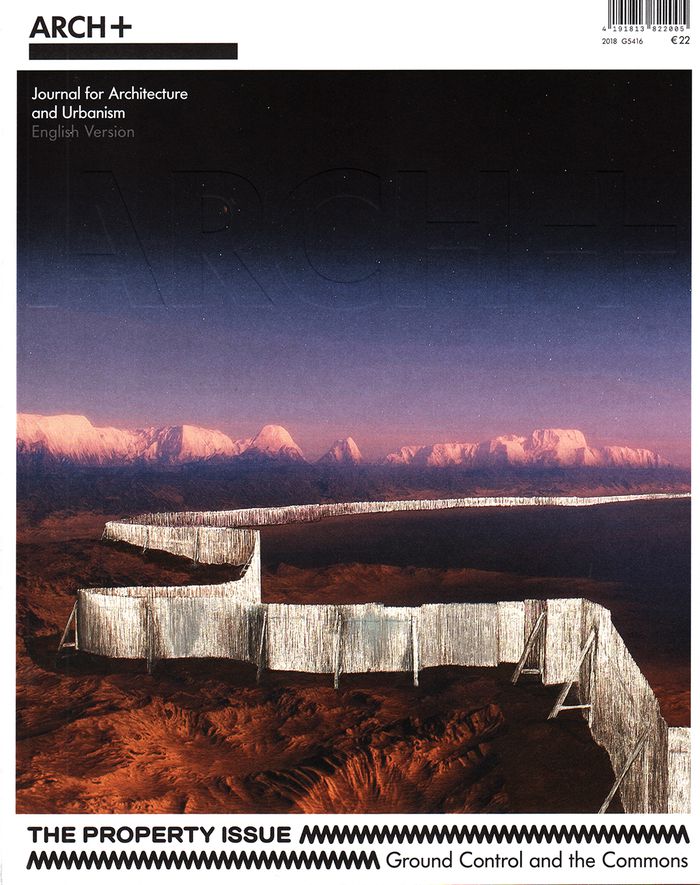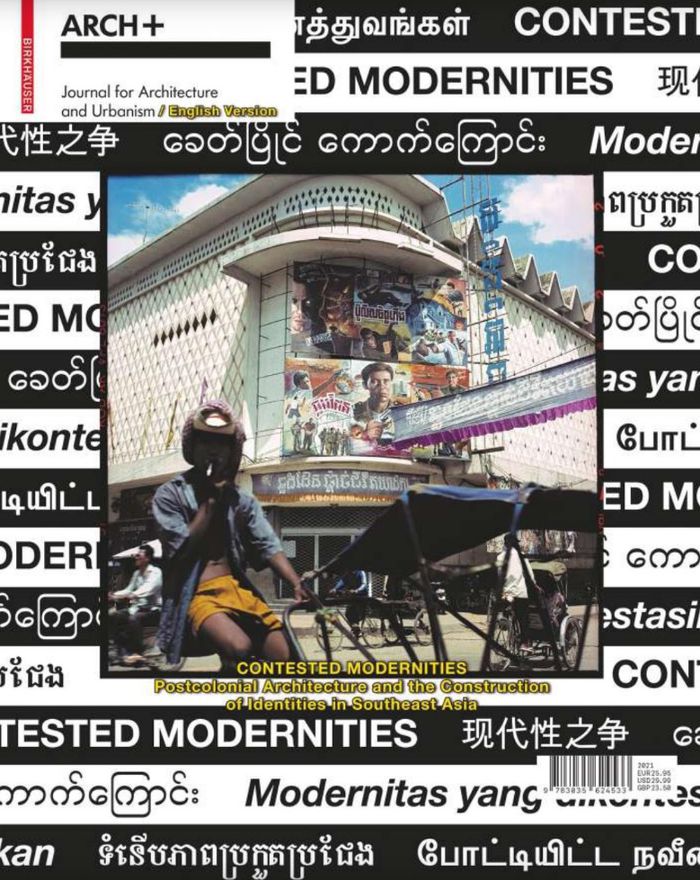$50.50
(available in store)
Summary:
For decades, the call for equality and equal opportunity has been heard within the hierarchical world of architecture. The number of those actively working for change is growing. Their goal is to turn architecture into an ethically responsible and socially and ecologically sustainable practice. The publication proceeds from the question of how forms of social injustice(...)
ARCH+ : Contemporary feminist spatial practices
Actions:
Price:
$50.50
(available in store)
Summary:
For decades, the call for equality and equal opportunity has been heard within the hierarchical world of architecture. The number of those actively working for change is growing. Their goal is to turn architecture into an ethically responsible and socially and ecologically sustainable practice. The publication proceeds from the question of how forms of social injustice are entwined on different spatial levels. As its enquiry unfolds, it becomes clear that the fight for gender equality in the built environment must now be linked to other forms of campaigning for social justice (anti-racism, anti-colonialism, the fight against transphobia and homophobia, etc.). As a political medium, architecture can help honour a new pledge of freedom based on a transformative idea of fairness. ARCH+ is Germany’s leading magazine for discourse in the fields of architecture and urbanism.
Magazines
$53.00
(available to order)
Summary:
A theoretical approach to repairing society from the perils of capitalism and overconsumption This collaborative project between ARCH+, Akademie der Künste, Berlin, ETH Zurich and the University of Luxembourg proposes a vision of societal repair based on practices of care, maintenance and mending.
ARCH+ : The great repair: Politics for a society of repair, a reader
Actions:
Price:
$53.00
(available to order)
Summary:
A theoretical approach to repairing society from the perils of capitalism and overconsumption This collaborative project between ARCH+, Akademie der Künste, Berlin, ETH Zurich and the University of Luxembourg proposes a vision of societal repair based on practices of care, maintenance and mending.
Magazines
$53.00
(available in store)
Summary:
This publication examines the economic conditions of architecture, which are all too often disregarded in the day-to-day life of people working in the profession. The focus is on contracts, jobs, and office structures, on profitability and phases in the construction industry’s economic cycles, on work processes, authorship, and labour rights, on digital outsourcing, and(...)
ARCH+ The business of architecture
Actions:
Price:
$53.00
(available in store)
Summary:
This publication examines the economic conditions of architecture, which are all too often disregarded in the day-to-day life of people working in the profession. The focus is on contracts, jobs, and office structures, on profitability and phases in the construction industry’s economic cycles, on work processes, authorship, and labour rights, on digital outsourcing, and digital out- sourcing. The book sets out to reveal the business footing on which architecture stands: How does it operate today in economic terms? "ARCH+ The Business of Architecture" is intended as a stimulus, offering tools that will empower budding and practising architects alike. A rich variety of (for the most part) up-and-coming offices are presented that have developed new, forward-looking business models, organizational strategies, and resource concepts: these include ARGE c/o, Assemble, Chybik+Kristof, Ana Filipovic, IFUB*, L’atelier—Nomadic Architecture Studio, and Space & Matter.
Magazines
$39.95
(available in store)
Summary:
We must continually remind ourselves that law originates in conflict, and that such concepts are not static determinations, but rather are constantly being renegotiated. Applying this relationship between law, regulations, and architectural practice, it becomes clear why the work of certain architects has a political dimension. This volume attempts to examine the inherent(...)
ARCH+ : Legislating architecture
Actions:
Price:
$39.95
(available in store)
Summary:
We must continually remind ourselves that law originates in conflict, and that such concepts are not static determinations, but rather are constantly being renegotiated. Applying this relationship between law, regulations, and architectural practice, it becomes clear why the work of certain architects has a political dimension. This volume attempts to examine the inherent meaning of societal regulatory systems as these relate to architecture, taking the film directed by Arno Brandlhuber and Christopher Roth, their submission to the 15th Architecture Biennale in Venice, as its point of departure, and presents a broad series of case studies largely based on the work of Alex Lehnerer.
Magazines
ARCH+ : Release architecture
$39.95
(available in store)
Summary:
An architecture biennale can be more than a place to simply represent and celebrate the status quo in architectural production. Exhibitions are increasingly becoming a place for researching and producing an experimental and critical architectural practice: a place not for the presentation of finished products, but for the production of content. This calls into question(...)
ARCH+ : Release architecture
Actions:
Price:
$39.95
(available in store)
Summary:
An architecture biennale can be more than a place to simply represent and celebrate the status quo in architectural production. Exhibitions are increasingly becoming a place for researching and producing an experimental and critical architectural practice: a place not for the presentation of finished products, but for the production of content. This calls into question the supposed boundary between architecture and exhibition. Inquiry becomes a form of display. Christian Kerez’s Incidental Space, exhibited in the Swiss Pavilion at the 2016 Architecture Biennale in Venice, attempts to inquire into the outer limits of what can be achieved in architecture today—in terms of both technical feasibility and the limits of our own imagination. How can you use the medium of architecture to contemplate an architectural space that is entirely abstract and as complex as possible? How could this kind of imaginary space even be visualized, and how could it be produced? Conceived in close collaboration with Sandra Oehy, the curator of the Swiss Pavilion, and Christian Kerez, the Swiss Pavilion architect, this issue of ARCH+ delves into the questions posed by Kerez’s “speculative space.” Contributors like Philip Ursprung, Mario Carpo, Armen Avanessian, and Timothy Morton consider how the object stands in relation to the subject in a world where the capacity for technological and digital reproduction increasingly renders the distinction between depiction and reality moot. Where is the space for architectural autonomy in this? How can we “Release Architecture”? A report from architecture’s speculative front.
Magazines
$40.00
(available in store)
Summary:
''Who owns the land?'' is a central question because space is a resource as vital as air and water. Today, however, data ownership has become just as relevant as the question of land ownership in the context of urban planning. Technology companies are entering the field of architecture with algorithm-driven planning methods and massive investments in infrastructures and(...)
Arch+, The property issue: Politics of space and data.
Actions:
Price:
$40.00
(available in store)
Summary:
''Who owns the land?'' is a central question because space is a resource as vital as air and water. Today, however, data ownership has become just as relevant as the question of land ownership in the context of urban planning. Technology companies are entering the field of architecture with algorithm-driven planning methods and massive investments in infrastructures and smart cities. In their technocratic vision, citizens become users, architecture becomes an instrument of statistics, and concepts such as the city and society become mere algorithmic assemblages. This issue, co-edited by ARCH+, Arno Brandlhuber, and Olaf Grawert of station+/ETH Zurich, discusses the politics of space and data; the real and virtual assets of the city of the future.
Magazines
$40.00
(available to order)
Summary:
This issue of 'Arch+' aims to help change how we view urban land and encourage land law reform, to return land governance to the local level. Secondly, it addresses the domestic sphere and its activities with the help of feminist theory, because this largely falls outside the economic equation yet is also a genuinely political place. With 16 pages special feature on the(...)
Arch+ Spring 2018: the property issue
Actions:
Price:
$40.00
(available to order)
Summary:
This issue of 'Arch+' aims to help change how we view urban land and encourage land law reform, to return land governance to the local level. Secondly, it addresses the domestic sphere and its activities with the help of feminist theory, because this largely falls outside the economic equation yet is also a genuinely political place. With 16 pages special feature on the Luxembourg Pavilion at Venice Biennale.
Magazines
$38.95
(available to order)
Summary:
In many countries of Southeast Asia, the middle years of the 20th century marked the dawn of a new era. Independence had been won from colonial powers, and young states such as Burma (Myanmar), Indonesia, Cambodia and Singapore were faced with the task of reconstituting themselves as nations and developing an independent postcolonial identity. Architecture and urban(...)
Arch+ 243: Contested modernities: postcolonial architecture and the construction of identities in Southeast sia
Actions:
Price:
$38.95
(available to order)
Summary:
In many countries of Southeast Asia, the middle years of the 20th century marked the dawn of a new era. Independence had been won from colonial powers, and young states such as Burma (Myanmar), Indonesia, Cambodia and Singapore were faced with the task of reconstituting themselves as nations and developing an independent postcolonial identity. Architecture and urban planning played an important role in this process. Local manifestations of modernism emerged that sought to reconcile universal aspirations with specific social conditions. This volume critically examines this architectural and ideological heritage and argues for the preservation and redevelopment of these particular architectures, which are at risk of disappearing amid the rapid urbanization of today.
Magazines
